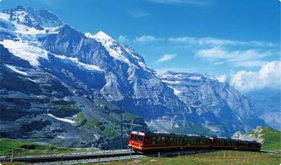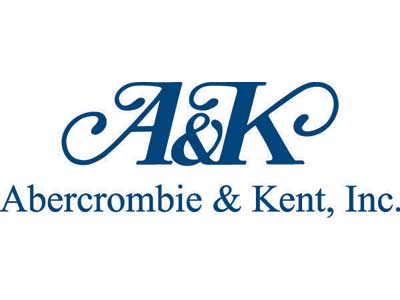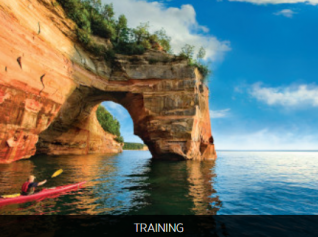Carbon management in tourism: from air to train: TUI pushes pace

Blue train for green journey says Fritidsresor
First case history: big tour operator Fritidsresor starts modal shift: passengers vote to take the inner journey.
The question of how travellers can be convinced to change environmentally harmful transport modes in favour of more environmentally friendly ones is complex marketing appealing to behavioural change has usually been met with only limited success , and when air travel is involved, a distance decay function can be seen with regard to willingness to change transport modes, i.e. the longer the journey, the less likely are travellers to use slower transport modes.
More innovative strategies have to be developed to achieve modal shift towards more environmentally friendly means of transport over longer distances.
The solution:
Fritidsresor belongs to the Swedish group Fritidsresegruppen (Fritidsresor Group Nordic), which is part of the world’s largest travel company, TUI Travel Plc, with 30 million customers per year. Fritidsresor started to offer train charter as an alternative to air charter flights in summer 2007, in cooperation with Swedish Railways.
The idea was born out of discussions of how to create more climatically friendly tourism, and the first train packages offered by Fritidsresor went all the way from Sweden to Italy. The marketing of the new train charter product was initiated with a press release on 28 March 2007, and no significant demand was expected; reservations had been made for just 20 train seats on four departures, i.e. totalling 80 seats. However, the 80 seats were sold out within a few days, and after additional capacity was created, a total of 800 train charter tourists were finally sent on the trip to Lake Garda and the opera festival in Verona (both in Italy), a journey taking 21 hours (Malmö–Berlin–Munich–Verona).
In 2008, Fritidsresor developed further train charter offers, with traveller numbers increasing to 5,000. However, in 2009, traveller numbers declined again to 2,500, which Lottie Knutson, the company’s Director of Marketing, Communications and CSR, explains by a growing number of (direct) flight connections, and hard-to-compete prices of low-cost carriers. Another negative factor is train changes, as travellers from Stockholm have to change connections in Lund or Malmö in southern Sweden, and again in Munich in southern Germany.
Despite considerable interest, train charter is thus a niche product, even though this might be seen as a result of the current market situation (competition from low-cost carriers) as well as the role of train charter in comparison to flight- based packages and associated marketing efforts: Fritidsresor sells more than 500,000 package journeys involving air travel, i.e. train packages were just 1 per cent of sales in 2008, and marketing is consequently focused on more profitable air-travel packages.
Fritidsresor continues to offer a range of pack- ages by train, however, now including summer and winter trips, and involving car rental at the destination as well as attractive stopovers on the way (for instance in Berlin). Lottie Knutson also believes that train charter has come to stay the expectation is that train charter could account for as much as 50 per cent of FritidsresorÂ’’s trips to the Mediterranean by 2030, provided that high- speed infrastructure is developed and that direct trains are available.
By then, it could be possible to board the train in the morning in Stockholm or Gothenburg and to arrive in the evening in the Mediterranean. Lottie Knutson believes that price will be a key component in this development, however, and suggests that there have to be special facilities onboard the trains, including restaurants and play areas for children.
Fritidsresor differentiates three customer groups interested in train charter: the Stones generation’ (55+ years of age), the ‘Interrail generation’, and the ‘Afraid- to-fly’s’.
Families with children are also a relevant group of travellers. Even though no systematic studies have been carried out, Lottie Knutson suggests that train charter is popular because a train journey provides time for what has become known in Sweden as the ‘inner journey’, after a campaign by Swedish Railways in the mid-2000s with the slogan ‘Upplev den inre resan (experience the inner journey). Train journeys are considered slow travel, allowing one to relax and reflect upon life, and to move at a speed different from everyday life Train travel is also seen to lead to interesting encounters with other people, and to provide another kind of travel experience.
Environmental benefits, such as lower emissions, might be a travel motive for a share of travellers, but rather an add-on to other benefits than a critical argument in itself). As a matter of fact, Lottie Knutson emphasizes that any reference to environmental issues was consciously omitted in marketing, and that tangible advantages of train charter trips were underlined:
Holidays are the most important time of the year…that’s why environmentally friendly tourism alternatives have to be positive and attractive . we simply do not put our holidays or money on things that are ‘musts’.
In light of this, the success of the train charter concept might predominantly lie in FritidsresorÂ’’s communication strategy and packaging, which for instance allows for stopovers at interesting sights on the way – sights that air travellers cannot see.
In terms of CO2, train journeys help to avoid considerable amounts of emissions. For a rough calculation, a traveller using the train from Stockholm to Lake Garda (3,400km return) will cause emissions of roughly 73kg CO2 for transport only, including ferry, while the same traveller arriving by air will cause emissions of 346 kg CO2. Air emissions are thus more than 350 per cent larger, notably not including additional Radiative Forcing from aviation’s non-CO2 emissions.
Moreover, when flying, people might choose more distant destinations, as the high speed of the aircraft shrinks perceived distance. As it is unknown which destinations would have been chosen by travellers in the absence of opportunities to use the train, the avoided amount of >250 kg CO2 per traveller is, arguably, a conservative assumption.
Impact
Fritidsresor has shown that through the creation of new products it is possible to achieve modal shifts, considerably reducing emissions associated with transport. Moreover, it is anticipated that the future potential of such offers is far greater than current uptake.
Train travel over distances covering up to 2,000km have considerable potential to be made attractive to tourists, but the train product has to be improved for this, including faster and more direct connections, as well as special amenities, such as play areas for children, or family compartments with shower and toilet onboard the train – all of this at competitive prices. This again points at the importance of air transport becoming more expensive, given current competitive distortions of transport systems.
The above was excerpted from ‘Carbon Management in Tourism’ by Professor Stefan Gossling due to be published by Routledge on 9 December
www.routledge.com/books/details/9780415566339/
Valere Tjolle
Get free sustainable tourism reports from Vision on Sustainable Tourism HERE
Valere Tjolle is editor of the Sustainable Tourism Report Suite: EXTRA SPECIAL OFFER at: www.travelmole.com/stories/1144671.php
 United Kingdom
United Kingdom United States
United States Asia Pacific
Asia Pacific












































EU airports bring back 100ml liquid rule
British Airways passengers endure 11-hour 'flight to nowhere'
CLIA: Anti-cruise demos could cause itinerary changes in Europe
Co-pilot faints, easyJet flight issues ‘red alert’
Gatwick braces for strike